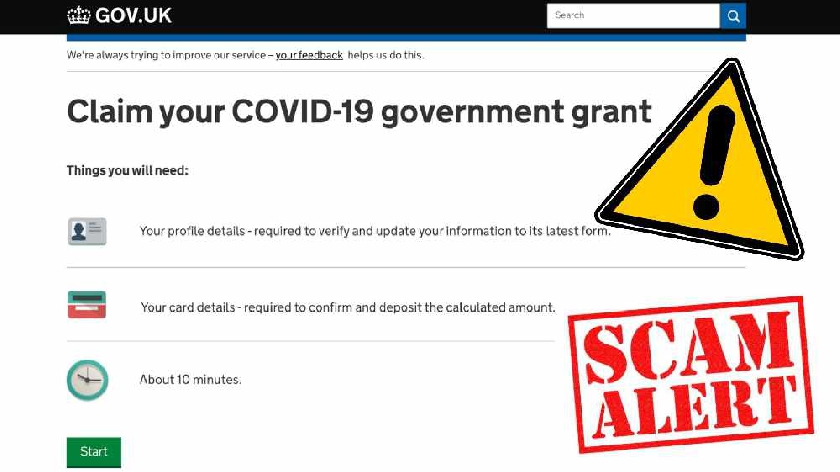
A wave of scam text messages are being received across the UK, potentially duping people into giving up their card details in order to claim a non-existent government grant.
The scam has been quickly designed to take advantage of confusion following yesterday's announcement of another national lockdown due to the coronavirus pandemic.
But there are a number of signals in the text message, including grammar and spelling errors despite claiming to be sent from HM Revenue and Customs, that can alert people to the fraud.
One message seen by Sky News states: "From HMRC: The third lockdown has been announced, we have been issued a grant off £240 to help during this period, visit to claim:" and then links to a website which the criminals control.
While this website is designed to look like the official government one, it is not hosted on the gov.uk domain, another strong signal that people should use to recognise that the site is illegitimate.
The site also tells users that they will need their card details ready in order to claim their COVID-19 government grant, something which does not exist.
HMRC warns people to delete the messages, not to follow the links, and not to enter any information on the scam website.
Fortunately both the Chrome and Safari web browsers flag the website as deceptive, and state it may be attempting to trick users into disclosing their credit card details.
Warnings regarding a different but similar scam offering COVID-19 tax rebates have also been posted on social media.
These scam texts, which operate in the exact same way - using texts to drive people to a fraudulent website - claim that the potential victim has a pending tax rebate that they need to claim.
The National Cyber Security Centre advises: "Suspicious text messages should be forwarded to 7726. This free-of-charge short code enables your provider to investigate the origin of the text and take action, if found to be malicious."
Fraud victims lost more than £4.6m to coronavirus-related scams during the first lockdown last March, according to ActionFraud.
As of the end of May, more than 2,000 victims lost cash through fake online goods sales, bogus cold-calls, non-existent pension plans and other frauds.
Another 11,206 people claimed to have been victims of email (phishing) and text (smishing) attempts to trick them into giving out personal details.
Article by Sky News













